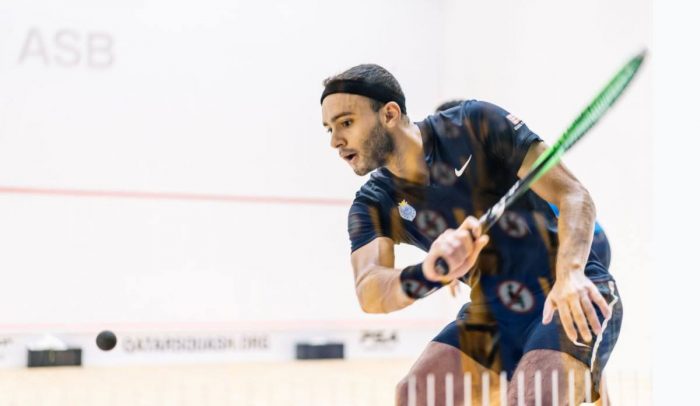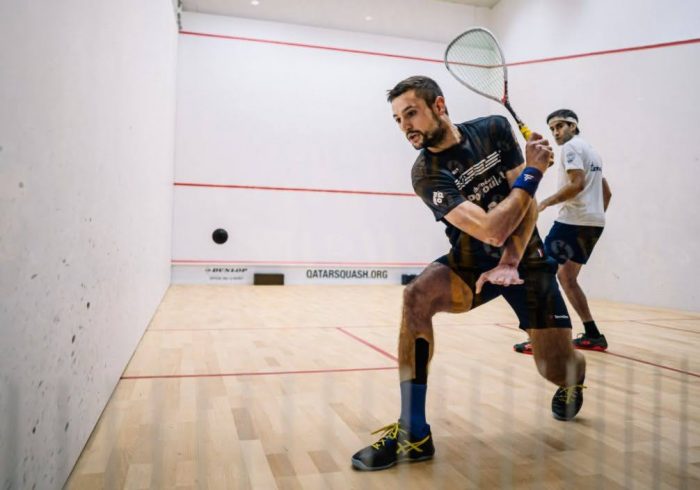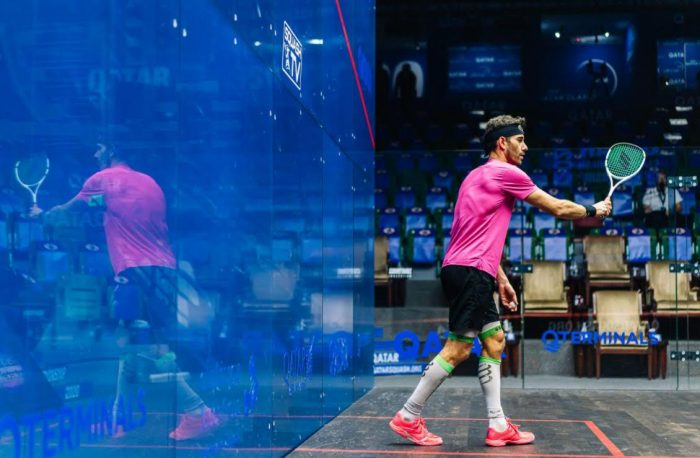A common question I get asked from players is, “How do I play at the beginning of a match?”. I love getting this question as it shows the player is conscious of their game and wants to employ some tactics in order to effective with what they are doing right from the off.
Players that just turn up and get on court and begin playing can be described as reactive and just seeing what comes their way. This can lead to a lot of random play and some obscure decisions. Players that start to formulate an idea of how to begin a match become a lot more aware of what they are doing and are able to employ strategies that give them the greatest chance of success.
The following tips are a guide about how you can give yourself the best chance to start your match the right way.
Have a plan
The bedrock of any good way to start a match is to be sure to get your length working as early as possible, be sure to feel the flow of your movement around the court, to get in front of your opponent, to feel confident when taking the ball in short, have good consistent accuracy levels and to have a heightened awareness of your opponent to be able to get the ball into the open space to make your opponent move. This all sounds ideal and good to strive for and is a very solid and generic game plan to use against any opponent. You won’t go far wrong employing and executing this plan.
If you know your opponent and how they play use this to your advantage. Be aware of their strengths and weakness and have this in your mind and run it through several times before the match. You can fast track some tactics such as taking the ball in short earlier if they are a slow mover to the front, or to extend the rallies more to the back if they don’t have high fitness levels. Having prior knowledge and being able to use this is key. But if you don’t, then the above generic plan is a great place to start especially so the length and getting in front of your opponent. Those are 2 of my biggest tips I give to anyone how best to start a match against an unknown opponent.
 Use the knock-up
Use the knock-up
Whilst warming the ball up use these precious few minutes to get physically, tactically and mentally in gear. Just bashing the ball about to get it warm with no thought or practice of what you are going to do is a huge wasted opportunity. You need to use this time to get you going but equally and sometimes even more important is to have a look at your opponent and how they hit the ball. Really watching and studying them in the knock-up can give you some clues and signs to some of their strengths and weaknesses. Use a range of shots when hitting the ball back to your opponent to see if they struggle with anything, particularly the high backhand volley. A good little test early on to try. Also, be sure to put your strengths on show and have a really confident and positive body language. Move around, be active and use this time to work both on your assets as well as extracting knowledge from your opponent.
The rule of 6
If you are struggling and things are not going all too well with timing, accuracy, flow and movement then try the rule of 6. The rule of 6 is demanding yourself to get the next 6 shots to be string and to bounce into the back wall. Ignore all other shots and options for this short amount of time and really focusing on getting this one task done. It will allow you to push your opponent deep in the court, giving you time to get the feel of the game and the pace as well as giving you the chance to get onto the T and look to stay there. You may need to repeat this rule several times over and be really stubborn with it in order to try and get fully into the match. This can be effective when playing a stronger opponent as no matter how good they are, being pinned into the back corners and having little options is hard for any player to handle.
 Movement
Movement
Ensuring you are moving well around the court is a high priority early on in matches. Give yourself time to move well by making sure you get the ball deep and long early on as this will give you more time to get into the flow of the match. Consider using some extra softness and extra height on the front wall and be sure to follow through when hitting. Work on coming out of your shots efficiently, flowing up to the T and working on the timing of your split-step. When you can get these areas of your movement going, your levels of anticipation and awareness begin to increase, and you start to feel really connected to the game.
Learn
Be a student. Absorb all the information you can and learn in each and every exchange you have with your opponent. If you become too blinkered and focused just on yourself, you may miss and not spot the obvious ques and signs of how to adapt and play shots or use tactics that will really benefit you. Even if you start slow and don’t get many points on the board, take this as reading the first introduction to the game. The more you can take in the more you can adapt as you go along. Even losing the first game is no big deal and you can use this to your advantage especially if you have learnt along the way. Sometimes your opponent can win the first game but learn nothing from you so losing it is no bad thing but only if you are clear in your intentions going into the second game.
 Trust
Trust
Be willing and determined to trust in your process and the plan you have put in place. Sticking to it and believing in it will, over time, pay off. Try not to press the panic button too early and change things around too much. The more you can trust in the process and the plan the more you can form and hone your identity. This sometimes won’t work in the short term but over time you will be able to really get your identity of how you want to play going. Be sure to also link in the idea of learning as if you spot something be sure to use this to your advantage.
In summary, there are some key fundamentals in order how best to start a match. Against any opponent getting your length going well and getting in front of them will really start to give you an advantage and to get the game on your terms. Be sure to learn as you go about your business and gather as much information as possible. Doing this will allow you to be flexible and be fluid with what you are doing, and you won’t just be reactive to your opponent’s play. You are attempting to take control of your destiny and how you want the story to unfold for the remainder of the match.
Jesse Engelbrecht
Need to improve your mental game?
Then check out this series where Paul Assaiante explains everything you need to know to improve your mental toughness during matches.
Watch now